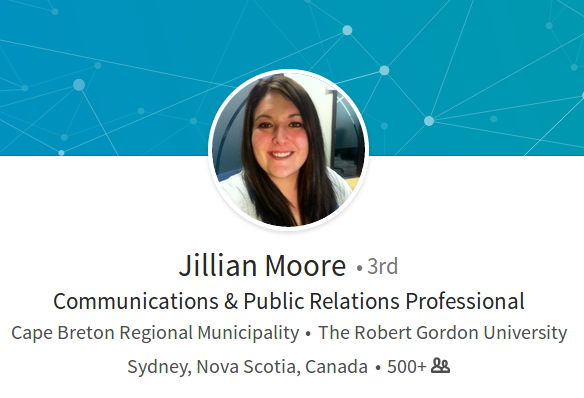Glace Bay Revitalization
You will not be able to tell from this article, but I am working busily behind the scenes trying to piece together the timeline on the Glace Bay Revitalization project — not the 20-year timeline attached to the actual project but the months-long timeline attached to the application for funding.

Senators’ Corner, Glace Bay, NS, 1906. (Source: Beaton Institute Digital Archives)
I am not, obviously, opposed to the revitalization of Glace Bay. I like Glace Bay — so much so, I could probably have written a far more compelling, historically accurate and literate account of the town’s history than that provided by Business Cape Breton (BCB) in its funding application (but then, so could the average third grader):
For over 100 years, coal represented one of the largest revenue sources for Nova Scotia and Glace Bay played a significant part in this revenue. It was this vibrant economy, along with the natural beauty of the area that was key factors [sic] in attracting men like Bell and Marconi to the Island.
I have a bunch of information to digest, a lot of gaps to fill and a number of bones to pick with the access to information administrators in at least two provincial government departments, but I am beavering away and hope to have something for you soon.
Our port marketer’s new book
 A reader alerted me to a rare Barry Sheehy sighting this week. Our port marketer turned up in Montreal’s Le Devoir promoting his soon-to-be published book, Montreal, City of Secrets: Confederate Operations in Montreal During the American Civil War. (Here’s the Google translate version of the article.)
A reader alerted me to a rare Barry Sheehy sighting this week. Our port marketer turned up in Montreal’s Le Devoir promoting his soon-to-be published book, Montreal, City of Secrets: Confederate Operations in Montreal During the American Civil War. (Here’s the Google translate version of the article.)
The reporter, Jean-François Nadeau, identifies Sheehy as a “historian,” a title Sheehy himself doesn’t actually lay claim to — this is his bio from the website of his publisher, Quebec-based Baraka Books:
Barry Sheehy is an award-winning author of six books. His most recent, Savannah: Immortal City, was featured at the prestigious Savannah Book Fair. His writings have appeared in historical and business publications worldwide. Born and raised in Montreal, Barry Sheehy divides his time between Gabarus, Nova Scotia and Savannah, Georgia.
Nowhere, interestingly, does he identify himself as a port marketer.
Sheehy’s subject is the Confederates who laundered money, plotted raids and even — in the case of both Lincoln assassin John Wilkes Booth and Confederate President Jefferson Davis — considered taking refuge in Montreal after the American Civil War.
Sheehy says that although we believe “naively” that Canada (or British North America, as it was at the time) opposed slavery and supported Abraham Lincoln’s war, the truth is that our British overlords would have preferred a divided US and the Confederates had plenty of sympathizers among Montreal’s anglo ruling elite.
Both Booth and Davis spent time in the city, Davis staying with Montreal businessman John Lovell, who lived in the building that now houses the city’s Hudson’s Bay store. In 1957 (read: during the US civil rights movement), the United Daughters of the Confederacy placed a plaque on the store commemorating Davis’ stay. This week, in the wake of events in Charlottesville, Virginia, the Hudson’s Bay Company removed it.
Sheehy waded into the Charlottesville issue during the Le Devoir interview. How deeply he discussed it with the reporter I have no idea — Nadeau included only one quote on the subject. Here’s the translated version:
“You must remember that, during the civil war, the Southern States counted 6 million inhabitants. At least 350,000 soldiers would be killed or wounded. That means about 40% of the men of fighting age are affected. It’s enormous.”
The memory of that wound, Sheehy told Nadeau, helps explain what happened in Charlottesville last week.
Hmmm, what’s missing from this account of the Confederacy during the civil war? Oh, I know — black people. According to the US National Park Service, the population of the Confederacy was 5.5 million “free” people and 3.5 million “enslaved” people. In other words, black slaves accounted for 40% of the Confederate population.
And those 350,000 killed or wounded soldiers represent 40% of the white men of fighting age — black men were not permitted to join the Confederate army until the final year of the war, 1865, and very few did.
Sheehy is focused so intently on those dead white Confederate soldiers, he doesn’t have to admit that the South started the civil war or that it did so to defend the institution of slavery (as Ta-Nehisi Coates has documented quite devastatingly).
Sheehy has neatly removed race from the equation, leaving only Southerners mourning their battle dead — but does that really explain what happened in Charlottesville last week? Does that explain why a white supremacist from Boston like Richard Spencer was there? Does it explain the Nazis? (Unfair question — nothing can explain the Nazis.)
Let’s hope Sheehy the historian actually offered a much deeper, more nuanced take on Charlottesville which Nadeau reduced to one, unfortunate quote.
CBRM Communications
The CBRM has a new communications and information officer. Her name is Jillian Moore and she’s got an interesting CV — she has a Bachelor of Business Administration (BBA) from CBU and a Master of Science (MSc), Corporate Communications and Public Affairs from the Robert Gorden University in Aberdeen, Scotland.
She’s worked in Aberdeen (with Red Mist Media and Dana Petroleum) and was most recently employed with Calgary-based GuestTek, “a global leader in broadband technology and interactive solutions for the hospitality industry.”
She emailed me today to introduce herself. I will probably become a thorn in her side before long, but I am positively disposed toward her because she was hired as a result of an open competition under our municipal hiring guidelines, she is not considered “political” staff and she is clearly qualified for the job.
And did I mention she emailed me to introduce herself?
Welcome Jillian Moore.
The Cape Breton Spectator is entirely reader supported, consider subscribing today!








